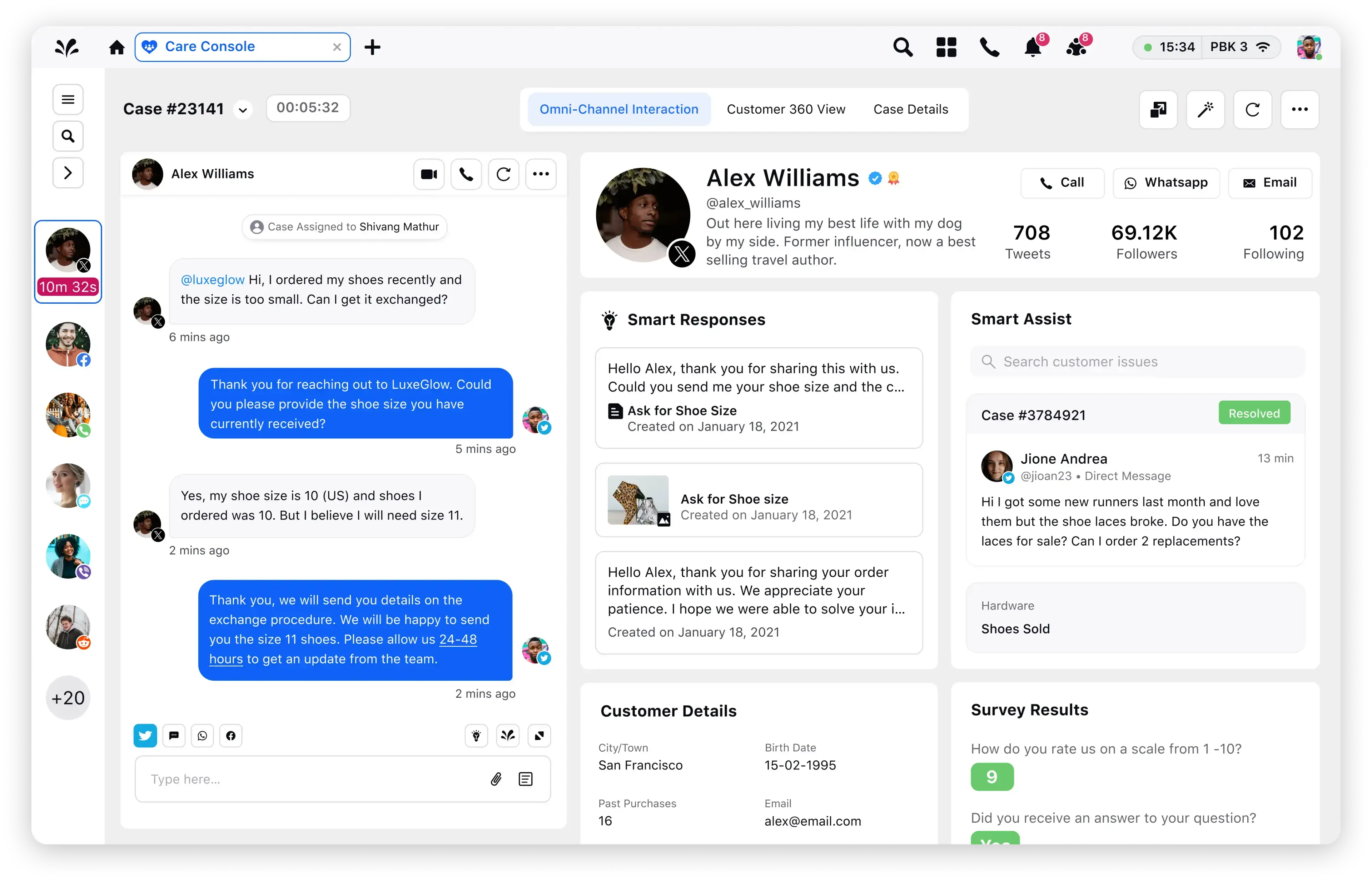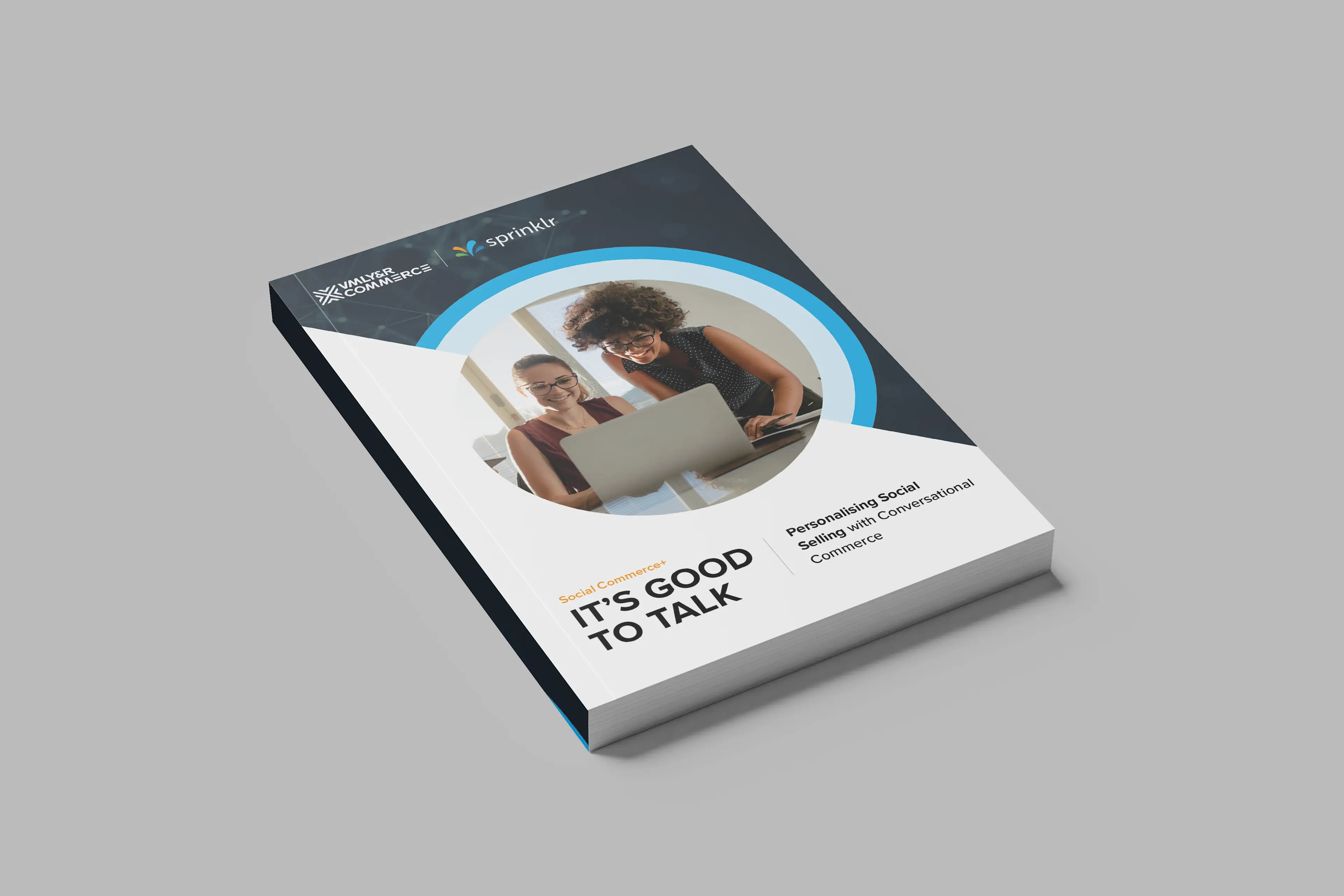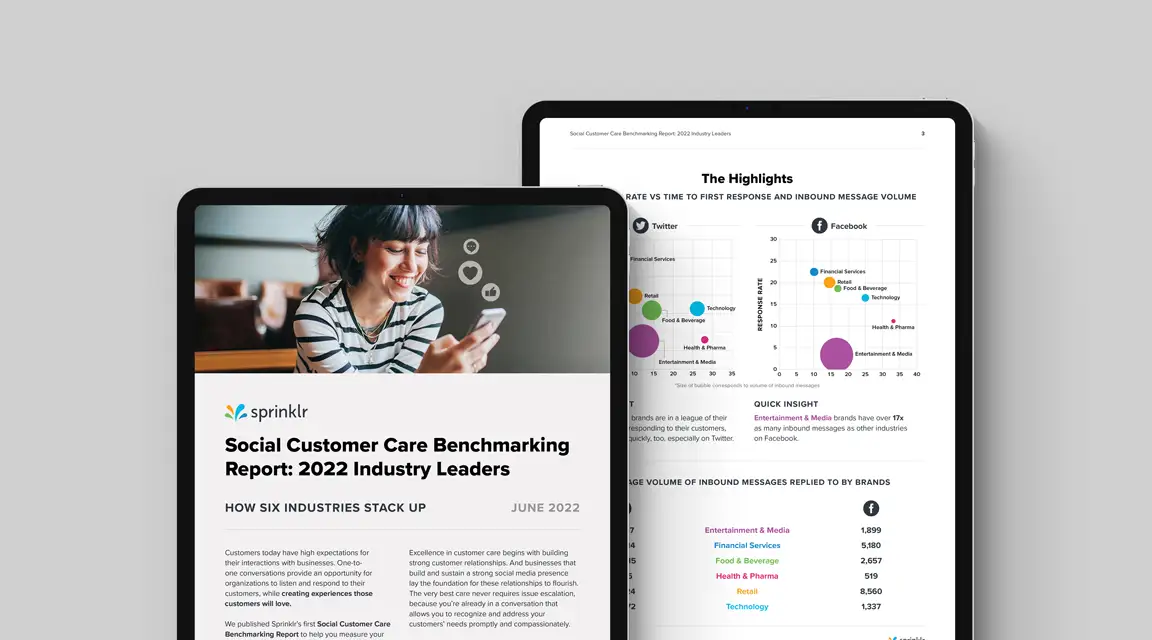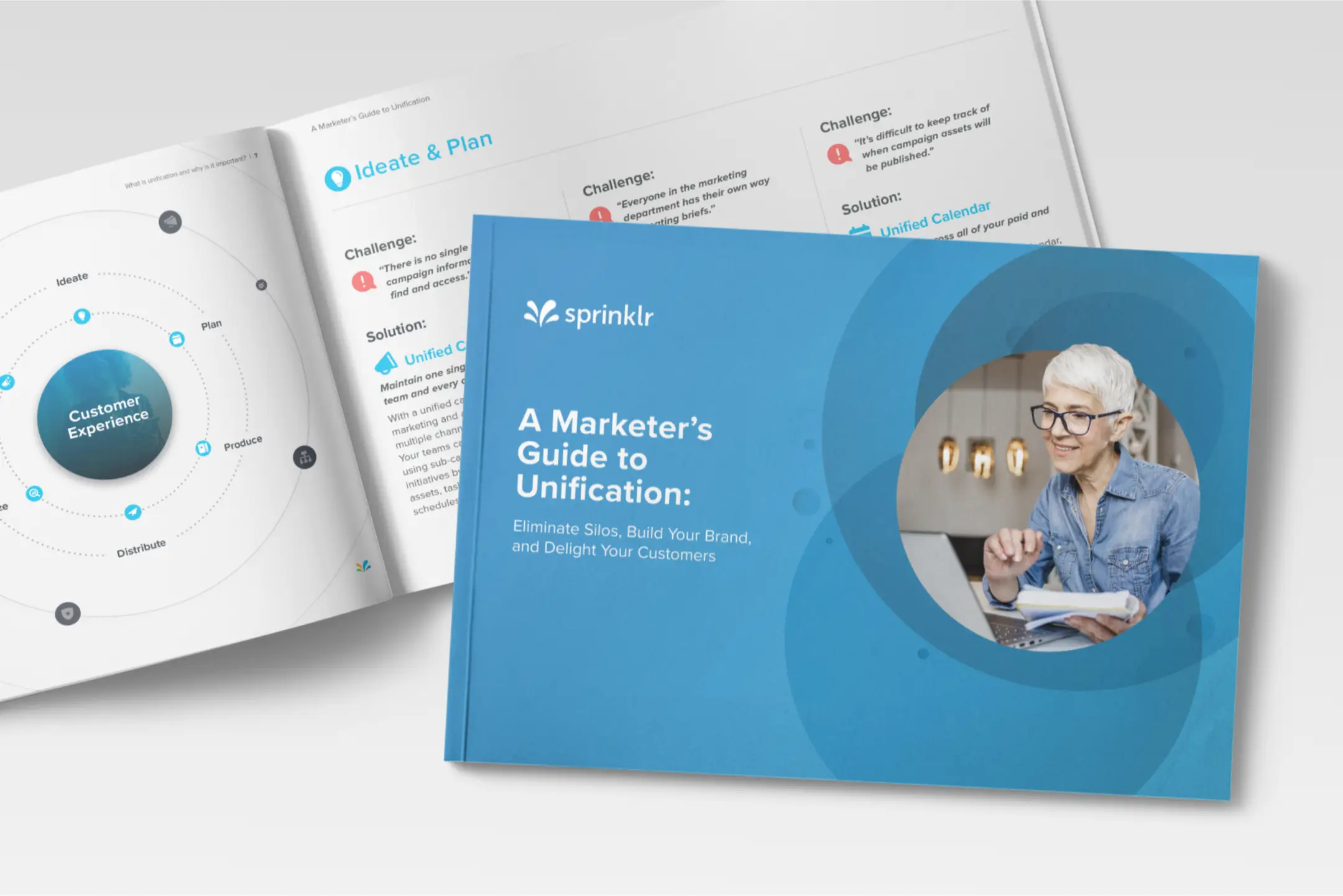The AI-first unified platform for front-office teams
Consolidate listening and insights, social media management, campaign lifecycle management and customer service in one unified platform.

Why businesses need enterprise social listening platforms in 2023
As we enter 2023, the importance of social media for businesses cannot be understated. In order to thrive in this competitive business landscape, it is essential for companies of all sizes and industries to ensure they are engaging with their customers and keeping track of what is being said about their brand on social media. Simply having a social media presence is no longer enough; brands need to actively monitor and participate in conversations on social media to maintain a positive brand reputation and build a loyal customer base.
This is where enterprise social listening platforms come in. Incorporating enterprise social listening tools into a company's core business strategy is essential for staying competitive in today's social media-driven business environment.
How enterprise social listening tools help reinforce business decisions
Social media pages for your brand are hotbeds of audience interactions, such as likes, comments, mentions and shares. These interactions can help you understand what people say about your business and marketing campaigns. Using enterprise social media listening, you can gain insight into online conversations about your brand. This allows you to proactively address customer issues and respond quickly and efficiently.
Incorporating social listening tools into your core business strategy can help you excel in the following four areas:

Customer engagement and marketing campaigns
After every marketing campaign, marketers determine what worked and what didn't. This is why marketers need to be familiar with social listening tools. For instance, if your brand's product launch generates many mentions (positive or negative) on social media, enterprise social listening platforms can help you analyze those mentions and your engagement rate. With that report, you can fine-tune your future marketing campaigns and maintain your brand reputation simultaneously. Not only that, but data collected from social listening can also be useful when finalizing your marketing budget, ensuring you have the necessary funds to invest in the right strategy.
Actionable customer insights
Social media is all about being in the moment and responding to posts in real time. Enterprise social listening tools allow you to be in lockstep with your customers, providing you with a detailed picture of what they are saying (both tagged and untagged mentions) on social media so you can respond immediately. For instance, if someone has something positive to say about your brand, your team can follow up with a quick "thank you." These small interactions can have a lasting impact and build loyalty. Similarly, you can collate insights on other areas of the business using social listening. For example, product development teams can analyze posts or comments about your products, identify pain points and address any gaps. Similarly, your marketing team can benchmark all the mentions for a specific product and gauge demand in a new region.
Key influencer partnerships
In our increasingly digital world, if you need to improve your engagement rate, an influencer partnership program is the best and easiest way to reach your audience quickly. Influencers can be strong brand advocates. Enterprise social listening platforms offer the ability to monitor and identify tweets, bios and mentions across social media, enabling you to identify and partner with valuable influencers. Similarly, you can start building a robust social media influencer network and strategy by identifying the best bloggers and YouTubers in your social sphere.
Crisis management
A social media crisis stems from online activity that has the ability to tarnish a brand's image and reputation. From offensive posts and inappropriate content sharing to hateful content distribution, a social media crisis can blow up in no time. As a brand, it is crucial to minimize the impact of negative reviews or mentions on social media. Social listening tools can help you listen to conversations directed towards your brand in real time and notify you about potentially damaging messages for early crisis mitigation.

Enterprise social listening tips and best practices
Before investing in a social listening tool or platform, it's important to define your goals and determine what you want to achieve through social listening. Here are some tips and best practices to help you get started:
- Know your target audience well: Conduct a thorough study to understand which customer personas are interested in your brand or products. Develop strategies to market to those personas on their preferred platform.
- Understand what areas social listening will cover: When you expand your customer engagement and communication channels, you'll have access to a wealth of data to derive insights from. It's important to know what your brand wants to learn from the gathered data and incorporate social listening into your marketing strategy based on your preferred areas of interest. This will help you filter out the noise in the data set.
- Develop a solid enterprise social listening strategy: After collecting social media data, analyze it and use the findings to develop an effective enterprise social media listening strategy. This will help you focus on relevant social conversations and explore why a particular set of audience is unhappy with your brand or product. You can then change your brand strategy, such as adjusting product prices, features or descriptions or rethinking how you reach out to your target audience on social media channels.
 A Marketer’s Guide to Unification: Eliminate Silos, Build Your Brand, and Delight Your Customersdownload the guide
A Marketer’s Guide to Unification: Eliminate Silos, Build Your Brand, and Delight Your Customersdownload the guide
Real-world examples of social listening done right
Here are a few real-life examples of how social listening is implemented in enterprise social media. All of the brands below use social listening effectively.
Fitbit's "Reminders to Move"
Fitbit uses social listening for product development, such as their "Reminders to Move" feature. This feature reminds users to stand up and move if they have been sitting for long periods. At Fitbit, social listening is used to identify and understand customer issues by gathering information from customers experiencing a particular problem. The company also collects ideas from their communities, and the best ideas are shared with the product development teams.
Taco Bell's excellent customer service
Taco Bell uses social listening to improve customer service and its social media marketing efforts. By listening to social mentions in real-time, Taco Bell has gained millions of loyal followers, increased the success rate of their engagement and created more conversations with their social media campaigns. Every campaign they put out on social media is based on research and input from various customer groups. Taco Bell even responds to customers' complaints in real-time with the help of social media listening.
L'Oreal's product strategy
L'Oreal uses social listening to identify industry trends and understand what consumers want in their products. By implementing social listening, the brand can keep an eye on customer ratings and reviews, both good and bad. L'Oreal believes that the way consumers purchase their products has changed with time, and it's crucial to be a part of online conversations across different forums, channels and communities. This helps the brand improve its product strategy and offer products that match its customers' changing needs.
What to look for in an enterprise social listening tool?
When researching and comparing social listening tools, it's vital to understand your business goals and map out the necessary features for each team. This might include knowing what data sets you want to dig into and which channels you want to monitor, or determining how many team members will operate the tool.
Here are some must-have features to look for in an enterprise social listening tool:
- Timely alerts, pop-ups and notifications: Your social listening tool should be able to provide you with real-time alerts, pop-ups and notifications for important events and mentions related to your brand. This allows your team to stay on top of the conversation and respond quickly when necessary.
- Competitive benchmarking reports: Benchmarking is an essential feature of social listening tools that enables you to compare your brand's performance against your competitors. This can help you identify gaps in your strategy and opportunities for improvement.
- Customer intelligence dashboards: Customer intelligence dashboards provide a quick and easy way to view important customer insights, such as sentiment analysis, demographics and behavior. This information can help you better understand your customers and make data-driven decisions.
- Crisis, anomaly and trend detection: You should be able to detect potential crises, anomalies and emerging trends in real time. This enables your team to act quickly and effectively to mitigate potential issues or take advantage of new opportunities.
- Predictive analytics: Predictive analytics can help you forecast future trends, identify potential issues before they occur and make data-driven decisions. This is especially important for social media teams who need to stay ahead of the curve in a constantly evolving digital landscape.
- App and CRM integration: Your social listening tool should be able to integrate with your existing apps and CRM system, enabling your team to manage all customer data in one place. This integration can streamline your workflow and save time for your team.
How Sprinklr offers a complete enterprise social listening experience
For brands to truly understand their customers, they need insight into online discussions, company mentions, product or service ratings and reviews. However, piecing together this disparate customer information from different point solutions can be tedious. Additionally, many social listening providers have a common issue of lengthy turnaround times for statistics, with some monitoring tools taking up to 24 hours to populate analytics dashboards with real-time conversations.
With Sprinklr, brands can monitor dozens of social media and messaging channels on one platform, providing a complete enterprise social listening experience in a short amount of time. Social media teams can extract data and gain insights into how trends have developed over time, enabling them to adjust their marketing plans to focus on actions that have historically produced the best results.
With Sprinklr Social Listening tool, your teams can listen proactively across 30+ modern channels, including social media, messaging, chat, review sites and more. These tools enable your teams to:
- Identify and break down relevant conversations related to your brand or product, thus providing you with new opportunities to drive brand loyalty
- Eliminate and filter out non-engageable messages and focus only on relevant messages, helping your customer care teams connect with customers at the right time on their preferred channels
- Monitor signs of brand risks and crises in real time and notify the relevant team for quicker action

